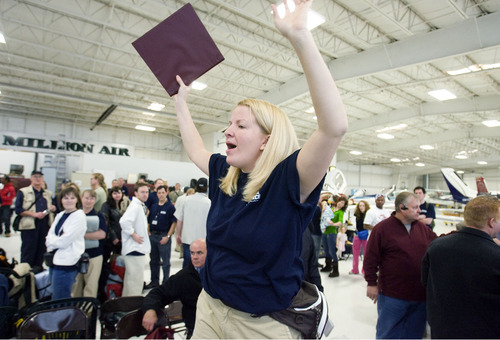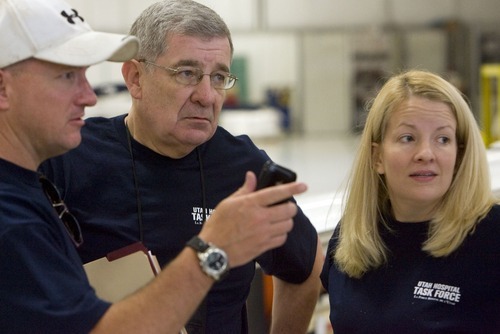This is an archived article that was published on sltrib.com in 2011, and information in the article may be outdated. It is provided only for personal research purposes and may not be reprinted.
A charity created by a Utah County businessman to fund the construction and operation of a full-service "American Hospital in Haiti" has folded.
Nine months ago, the original front man for Americans Helping Haiti, Stephen Studdert, said the charity was well on its way to having the hospital built in time for the one-year anniversary of the Jan. 12 earthquake in Haiti. But citing fundraising troubles and growing political unrest in the impoverished island nation, the nonprofit's board of directors voted this week to cease operations.
"The risks and dangers now existing in Haiti make building the envisioned hospital ... an impossibility at the present time," said the nonprofit's treasurer, Tom Murdock, in a prepared statement.
"We cannot ask our volunteer organization, in good conscience and wisdom, to engage in a process we cannot control in a place where resources do not exist to find solutions," he added.
The announcement comes on the heels of a lawsuit filed against Americans Helping Haiti, Studdert and Murdock by an investor who floated money for Studdert's first charitable foray into Haiti.
A former political adviser to U.S. presidents and an LDS Church mission president, Studdert used his contacts to orchestrate a 120-person relief mission to the earthquake-ravaged country — a planeload of translators and medical professionals dubbed the Utah Hospital Task Force. After the trip's success, Studdert created Americans Helping Haiti and vowed to help with the nation's long-term recovery and tackle its worsening health crisis through construction of a 103-bed hospital.
Murdock says the two charitable groups are completely separate.
But John Allen Nichols, of Alpine, formerly a neighbor of Studdert, believes they're the same, and he is now suing to recoup $165,000 that he says he fronted Studdert for flight costs to Haiti on the condition that he be repaid.
Studdert hasn't responded in recent months to requests for interviews.
In April, he estimated he needed to raise $10 million to $20 million for the hospital. How much he managed to collect or spend is unknown.
Murdock says only that remaining funds will be contributed "to urgent medical needs" in Haiti. The nonprofit's year-end financial statements "will be filed [with the IRS] before the due date in May," he said.
But he admits to being far shy of the group's fundraising goals and says land for the hospital was never purchased.
"Steve [Studdert] wanted to think it could be done in one year," Murdock said.
But engineers and health care experts warned that the project could take up to three years, even in the best of circumstances.
Meanwhile, growing instability in the wake of a raging cholera epidemic and Haiti's failed presidential election has virtually stopped the flow of foreign aid.
"Skepticism is very high. Nobody wants to throw money at Haiti anymore," Murdock said. "We got pushed back by USAID [the U.S. Agency for International Development] and others who said, 'You're nice guys, but stop dreaming.' "
Murdock has spent recent months wooing private investors and mapping a new plan for a health campus to possibly include a hotel, restaurant and training center, which he envisioned as sustaining the hospital financially.
A month ago, he pegged chances of success at 50 percent.
This week, he conceded, "Mounting roadblocks are mounting faster than solutions can be found."
Tribune reporter Chris Smart contributed to this report.





